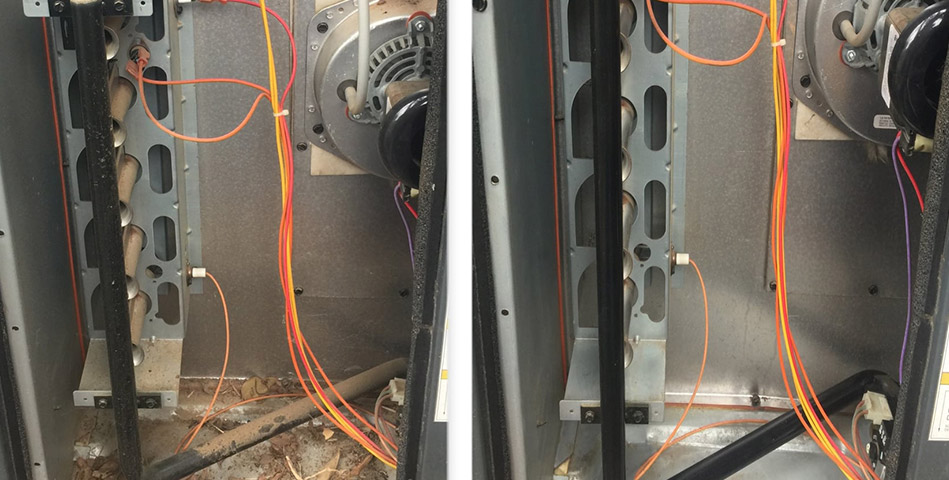Before seeking HVAC services in Tulsa, you can confirm your HVAC system’s energy efficiency in a number of ways. There are many ways of enhancing energy efficiency and lowering your carbon footprint. Having an energy-efficient HVAC system is one of those measures you can take as an individual. But how do you tell if your system is efficient?
Is your HVAC System ENERGY STAR Certified?
The ENERGY STAR program created by the EPA helps consumers establish if the products they are buying are energy efficient or not. Energy-efficient HVAC systems have the ENERGY STAR label. For such systems to be certified energy-efficient, they must meet certain guidelines. If you are using a system that doesn’t have the ENERGY STAR label, that system is probably inefficient. ENERGY STAR appliances are 20% or more energy-efficient.
What is the SEER Rating?
For HVAC systems to get an ENERGY STAR label, they must meet several guidelines, among them being the SEER rating guidelines. The SEER rating – Seasonal Energy-Efficiency Ratio is a measurement of annual energy efficiency while considering varying seasonal conditions.
An energy-efficient HVAC will have a SEER rating ranging from 14.5 to 22. This figure is present in the HVAC manual or on the system itself. The higher the figure, the better the energy efficiency. The U.S. Department of Energy has specific guidelines on recommended SEER ratings for HVACs based on factors like location.
What is the AFUE Rating?
Besides the SEER rating, the AFUE can also let you know your HVACs efficiency. Furnaces have an AFUE rating which is simply the amount of heat generated for every $ of fuel/energy consumed. The AFUE rating is similar to the miles per gallon rating for cars. A higher figure translates to lower energy costs. Energy-efficient HVAC systems have a rating of 78% or more. HVAC systems with an AFUE rating of 85% and above and a SEER rating of 20 or more are considered to be extremely energy efficient. If that’s the case with your HVAC system, you don’t need HVAC services in Tulsa.
How Old is Your HVAC System?
Generally, energy efficiency decreases with age. Older appliances can run smoothly when properly maintained over the years. However, they are likely to be less energy efficient in most cases. Technological improvements alone improve energy efficiency. Newer HVAC models feature high-tech technologies that make them use less energy than their older counterparts. If your HVAC is old, the system is probably less efficient than the newest models on sale currently.
Are There Signs of Inefficiency?
Besides looking at the age of the system, ENERGY STAR, SEER, or AFUE ratings, you can gauge your HVAC’s efficiency by focusing on some signs. For instance, a high electricity bill is a sure sign of inefficiency. However, you must confirm that your HVAC is the actual source of the problem. Energy bills can rise for many reasons.
Also, an HVAC that demands frequent maintenance is probably inefficient. Your HVAC shouldn’t break down often. If you change your filters often and do other necessary servicing, your system should work properly. However, changing air filters, doing electrical repairs, and seeking other HVAC services in Tulsa repeatedly is a bad sign. HVAC systems that need repairs or services more often than normal are probably inefficient.
The presence of cold and hot spots can also indicate inefficiency. Efficient HVAC systems should maintain a constant temperature throughout the home. You have a problem if you have some hot spots during summer or cold spots during winter. Inefficient HVAC systems have trouble warming or cooling rooms in their entirety.
Lastly, poor indoor air quality may also be a tell-tale sign of an inefficient HVAC system. Efficient HVAC systems either improve or maintain air quality. If you test your indoor air quality and notice a decline, your HVAC may be to blame. Inefficient HVAC units “work” harder than normal, resulting in high energy bills. However, their inefficiency i.e., clogged air filters or other malfunctions, compromises indoor air quality and generally increases energy consumption.
Summary
Before you seek HVAC services in Tulsa, ensure you consider the above information. HVAC systems become inefficient because of many things ranging from age to rating. A quick check on the above can help you confirm the need for HVAC repair services. Alternatively, you can seek professional HVAC services in Tulsa to confirm efficiency.


